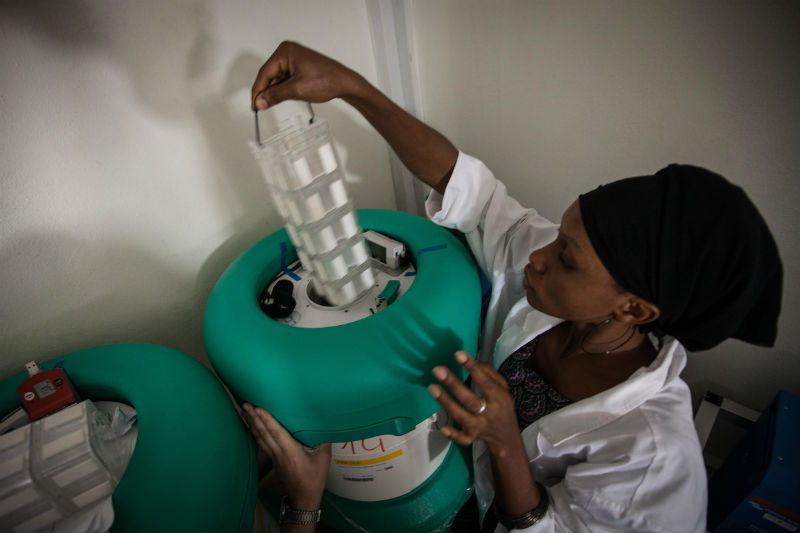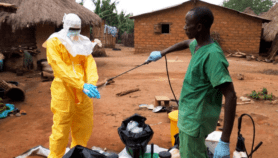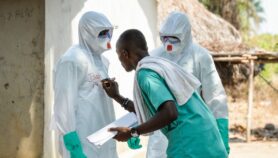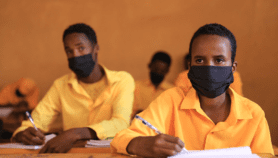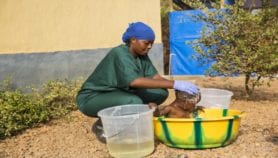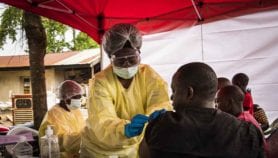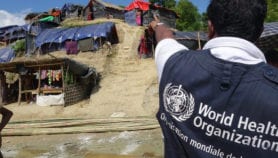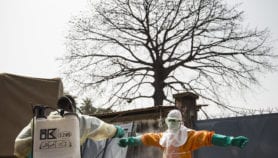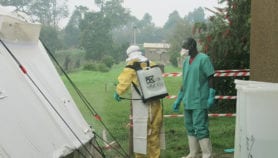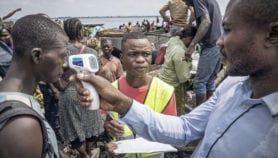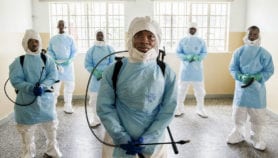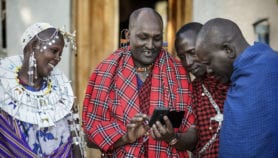By: Lisbeth Fog
Send to a friend
The details you provide on this page will not be used to send unsolicited email, and will not be sold to a 3rd party. See privacy policy.
[BOGOTA, COLOMBIA] A vaccine to prevent Ebola has proven 100 per cent efficacious in clinical trials done in Guinea and Sierra Leone.
The 2013 – 2016 Ebola outbreak in West Africa, which led to more than 11 300 deaths, demonstrated the need for a vaccine, according to WHO in a statement published last month (23 December).
According to the study, these results are received as a ‘magic bullet’ to prevent future devastating consequences.
The results of the rVSV experimental vaccine trials published in The Lancet last month (22 December) shows the same effectiveness in partial results published in 2015, but the recent paper includes results of children aged 6 to 17 years and people from Sierra Leona.
“We are proud that we have been able to contribute to developing a vaccine that will prevent other nations from enduring what we endured.”
KeÏta Sakoba, National Agency for Health Security, Guinea
In open-label, cluster-randomised ring vaccination trial, no cases of Ebola virus disease occurred ten days or more after 5,837 people were vaccinated immediately in 117 clusters of 5,643 adults and 194 children.
The study says that rVSV protected both vaccinated and unvaccinated people in those clusters. As it is a ring vaccination trial, it means that even though some people from the same cluster were not vaccinated for different reasons such as pregnancy, age, or not consenting, the researchers were able to evaluate the impact of the vaccination among all the ring or cluster members.
“Our data indicate that vaccination protected people that had received the vaccine as well as people who have not received it,” says Ana María Henao-Restrepo, a Colombian epidemiologist, team leader for implementation research at the Initiative for Vaccine Research, at WHO, who led the study.
The rVSV experimental vaccine is made from another virus, the Vesicular Stomatitis Virus (VSV), which causes disease in livestock but not in people. “The VSV carries an Ebola surface protein identical to one found on the Ebola virus. This protein primes the body’s immune system so that it identifies and attacks any real Ebola it encounters,” Henao-Restrepo tells SciDev.Net.
Ebola virus is spread through blood or bodily fluids and in the last outbreak it killed 50 per cent of the people infected.
“Ebola left a devastating legacy in our country,” said KeÏta Sakoba, a co-author of the paper and coordinator of the Ebola response and director of the National Agency for Health Security in Guinea, in the WHO statement. “We are proud that we have been able to contribute to developing a vaccine that will prevent other nations from enduring what we endured."
Megan Coffee, a health coordinator specialising in infectious diseases at the US-headquartered International Rescue Committee, lauds the vaccine as a “terrific step forward”.
“No one should ever have to face what so many people – especially nurses, doctors, and other caregivers who helped and were infected – faced in West Africa. This vaccine could potentially prevent this from ever happening again,” Coffee says.But Coffee adds that simply having a vaccine does not mean a disease is gone. The vaccine has to be used and those most at risk most need to be vaccinated. “It takes commitment from many as well as time and resources that are all in short supply to ensure a vaccine reaches whom it needs to reach,” she says.
This piece was produced by SciDev.Net’s Sub-Saharan Africa English desk.
References
Ana Maria Henao-Restrepo and others Efficacy and effectiveness of an rVSV-vectored vaccine in preventing Ebola virus disease: final results from the Guinea ring vaccination, open-label, cluster-randomised trial (Ebola Ça Suffit!) (The Lancet, 22 December 2016)


